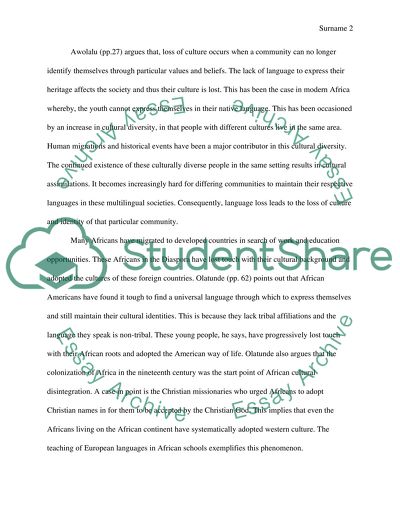Cite this document
(“Language and Identity in Africa Essay Example | Topics and Well Written Essays - 2500 words”, n.d.)
Retrieved de https://studentshare.org/sociology/1441015-is-language-relevant-at-all-in-the-perceptions-of
Retrieved de https://studentshare.org/sociology/1441015-is-language-relevant-at-all-in-the-perceptions-of
(Language and Identity in Africa Essay Example | Topics and Well Written Essays - 2500 Words)
https://studentshare.org/sociology/1441015-is-language-relevant-at-all-in-the-perceptions-of.
https://studentshare.org/sociology/1441015-is-language-relevant-at-all-in-the-perceptions-of.
“Language and Identity in Africa Essay Example | Topics and Well Written Essays - 2500 Words”, n.d. https://studentshare.org/sociology/1441015-is-language-relevant-at-all-in-the-perceptions-of.


